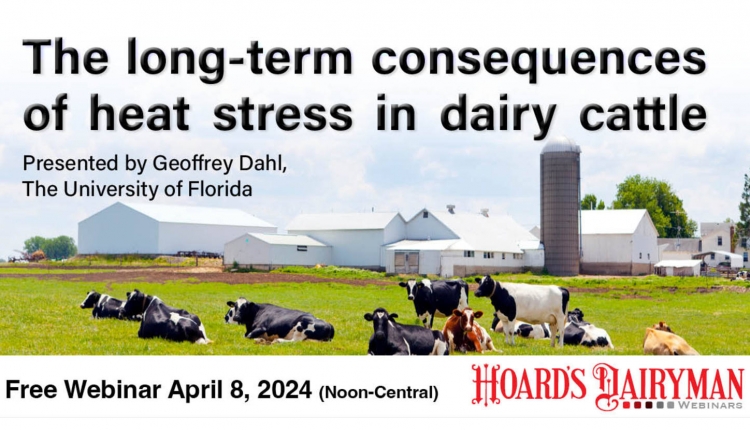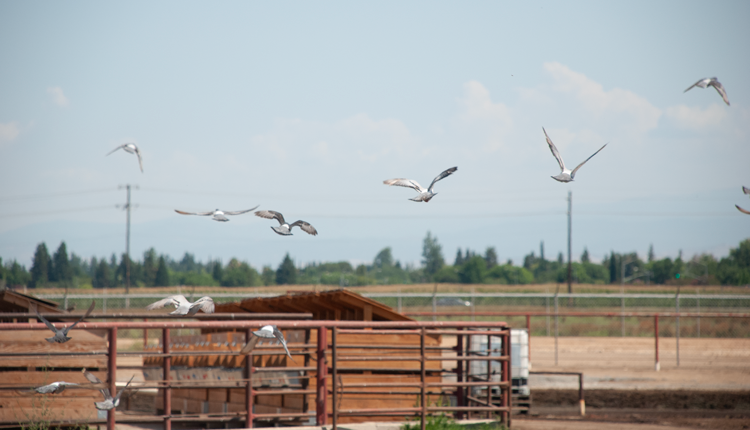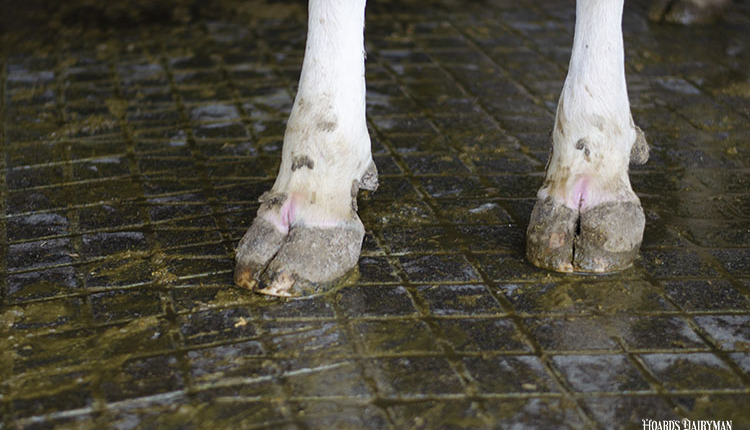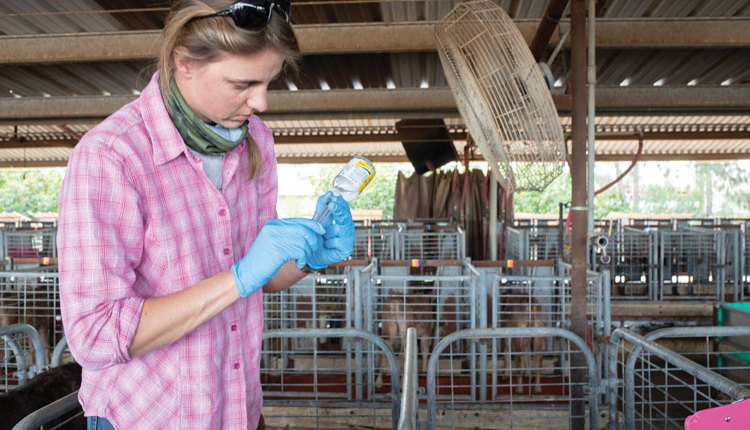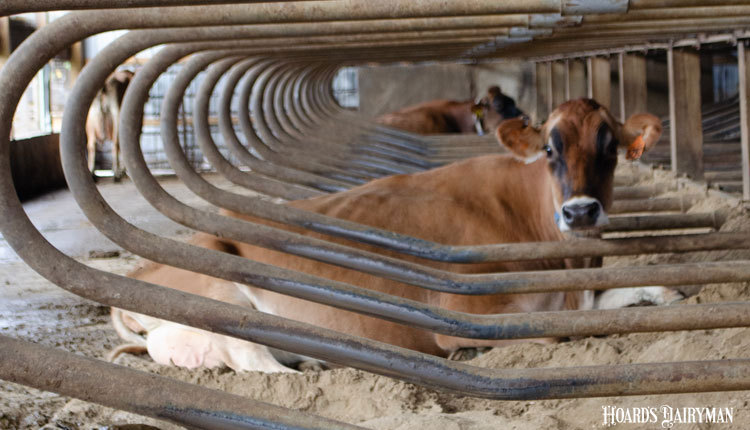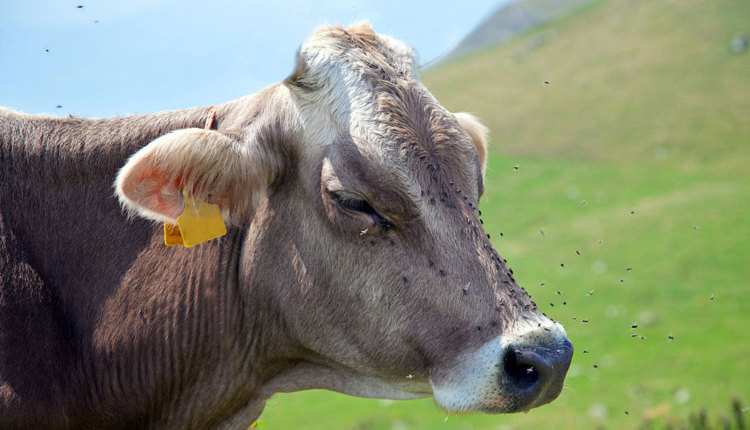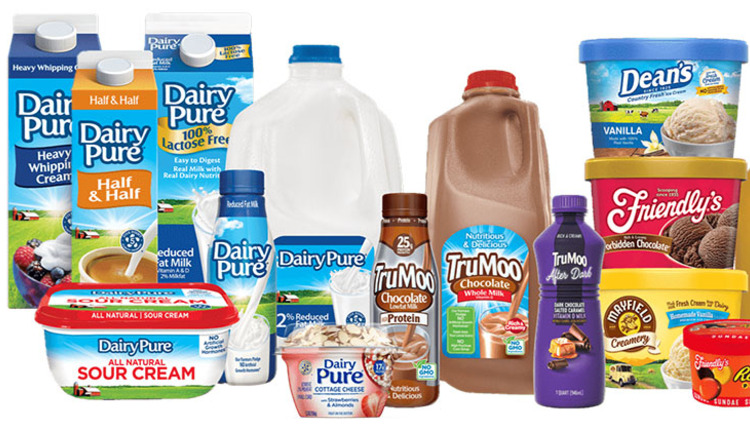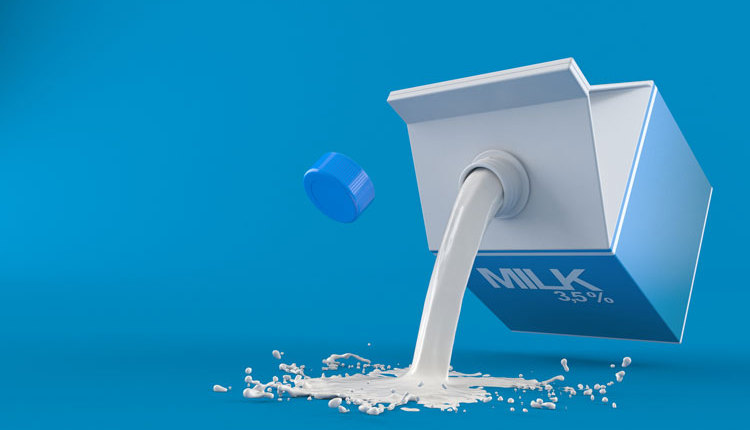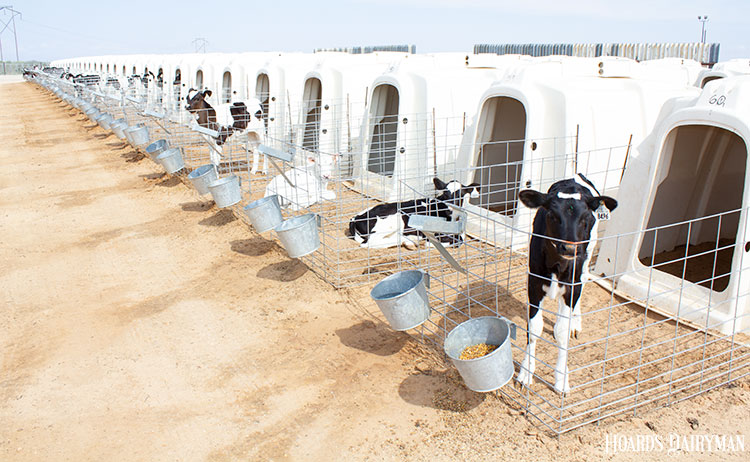
Social distancing, self-quarantine, and isolation have become the new nomenclature as we collaborate to quell the coronavirus. However, dairy producers, farm employees, and veterinarians alike have been speaking the same dialect under a different name for years — we call it biosecurity. It’s the approach we have employed to help keep animals healthy for decades.
One of the first forms of “social distancing” involved the introduction of calf hutches in the early 1970s. This practice helped protect the youngest and most vulnerable in our dairy herds. Once implemented, this calf care standard quickly cut down on respiratory infections and greatly diminished calf mortality.
Even with the more recent introduction of group housing on some farms, the youngest herdmates remain housed far away from older animals to help slow the spread of highly contagious diseases in an effort to “flatten the curve.” This same isolation takes place when we transfer cows to transition and maternity pens.
We practice self-quarantine on many of our dairy herds when bringing cattle from other farms. Since these individuals might have been exposed to a disease not encountered by their new herdmates, we place them in separate pens to ensure the health of the greater herd. In due time, these sequestered animals get moved to the general population. While these quarantines vary in length on our farms, the self-quarantine for humans who encounter the coronavirus is 14 days.
Then, there’s full blown isolation that takes place when we move sick cows to the hospital pen. Farmers do this to keep infected cows away from healthy herdmates. It also gives us a chance to administer special care to those that need it most. As for the coronavirus, human isolation can take place at home, at a care facility, or in a hospital.
Whether on our farms or in our communities, a disease outbreak can be overwhelming for all. That makes a good biosecurity plan all that more important in either preventing or, in the case of COVID-19, slowing the spread of a contagious disease.
